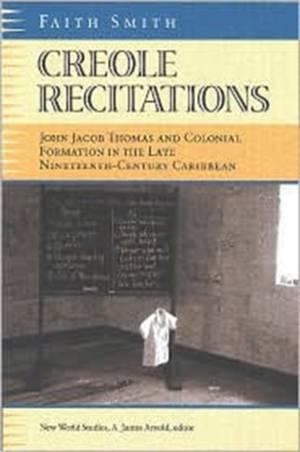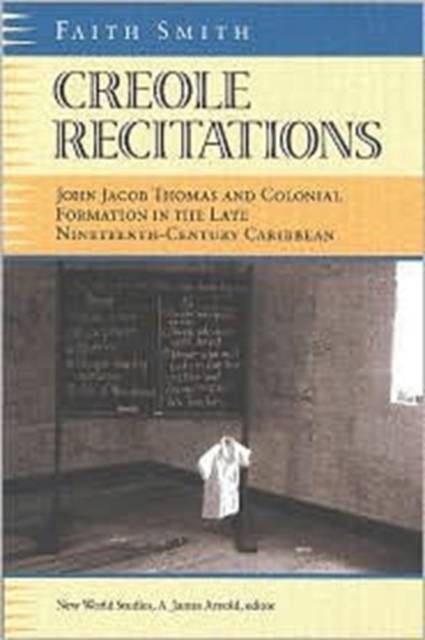
- Retrait gratuit dans votre magasin Club
- 7.000.000 titres dans notre catalogue
- Payer en toute sécurité
- Toujours un magasin près de chez vous
- Retrait gratuit dans votre magasin Club
- 7.000.000 titres dans notre catalogue
- Payer en toute sécurité
- Toujours un magasin près de chez vous
Creole Recitations
John Jacob Thomas and Colonial Formation in the Late Nineteenth-Century Caribbean
Faith L SmithDescription
John Jacob Thomas (1841-1889) was one of the leading members of a newly emergent intelligentsia in nineteenth-century Trinidad--a group that could be identified as both "Victorian" and "Pan-Africanist"--who not only challenged British imperialist accounts of Trinidad but also tried to show the interconnections, bloodlines, and origins of "Caribbean" and "English" identities usually perceived as separate and distinct. As a member of that emerging black lower middle class, Thomas was well known for his 1869 study of Trinidad's Creole language, as well as for Froudacity (1889), his pointed and witty response to the travel narrative of the Victorian James Anthony Froude, an early example of "writing back to empire."
Responding to Trinidad's transformation by significant migrations from the eastern Caribbean, West Africa, and the Indian subcontinent, he sought to "tame" the working-class energies that radicalized his work and to bring them in line with "modern" conceptions of the nation. As a defender of francophone cultural production in a British colony, though a loyal subject of Queen Victoria, and as a pan-Africanist whose commitments were simultaneously diasporic and local, Thomas complicates current discussions of colonial and postcolonial intellectuals, Black Atlantic paradigms, and Victorian intellectual life.
In Creole Recitations, the first full-length study of Thomas, Faith Smith puts his texts in dialogue with other narratives by local and international Pan-Africanists, Victorian intellectuals, and local and regional blacks, coloreds, and whites. Shedding light on the intellectual terrain of the late nineteenth century, she provides an important context for better-known figures of twentieth-century Caribbean literature such as C. L. R. James, V. S. Naipaul, and Jamaica Kincaid.
Spécifications
Parties prenantes
- Auteur(s) :
- Editeur:
Contenu
- Nombre de pages :
- 224
- Langue:
- Anglais
- Collection :
Caractéristiques
- EAN:
- 9780813921426
- Date de parution :
- 29-12-02
- Format:
- Livre relié
- Format numérique:
- Genaaid
- Dimensions :
- 157 mm x 241 mm
- Poids :
- 476 g







